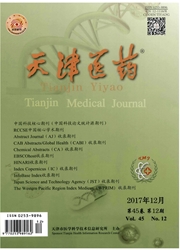

 中文摘要:
中文摘要:
非永生化细胞在体外的传代次数、增殖活性是有限的,在应用于细胞治疗或者是体外研究中会受到细胞数量的限制。转染有ts-SV40LT基因的细胞在许可温度下具有最大的增殖活性,在许可温度进行细胞扩增能弥补细胞数量不足的限制,非许可温度可用于细胞治疗或研究其生理特性。其研究领域涉及腹膜的间质细胞、泌尿道肌卫星细胞、口腔上皮细胞、肾上腺髓质细胞、骨髓血管内皮细胞、视网膜祖细胞、间充质干细胞、造血干细胞、肥大细胞、足细胞、库普弗细胞等。本文对ts-SV40介导的温敏细胞的研究现状做一综述。
 英文摘要:
英文摘要:
The in vitro passage number and proliferation of non-immortalized cells are limited, which restrictions cell therapy or in vitro studies. Cells transfected with temperature sensitive simian virus 40 large T antigen (ts-SV40LT) gene could show the greatest proliferation. The cells can be amplified with compensating the lack of limited number of cells under the permissive temperature. Non-permissive temperature can be used in studying the cell therapy or its other physiological characteristics. This research field involves peritoneal stromal cells, satellite cells of urinary tract, oral epithelial cells, adre-nal medullary cells, bone marrow-derived endothelial cells, retinal progenitor cells, mesenchymal stem cells, hematopoietic stem cells, mast cells, podocytes and Kupffer cells. In this study, the current research on Ts-SV40-mediated temperature-sensitive cells was reviewed.
 同期刊论文项目
同期刊论文项目
 同项目期刊论文
同项目期刊论文
 期刊信息
期刊信息
